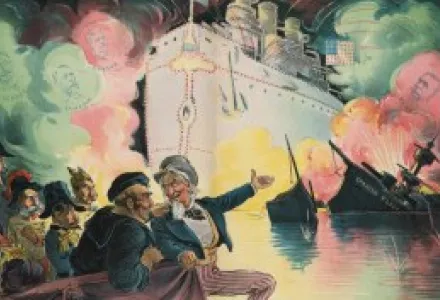In the years around 1900, it was clear to most observers that a startling disparity of wealth and power existed not only between European states and much of the rest of the world, a substantial proportion of which had already fallen under their control, but also within Europe itself. The near future was foreseen as one of instability, conflict, and possibly 'new partitions' of not just those non-European polities such as China or the Ottoman Empire yet to be colonized, but also of weaker, 'dying' European empires. These grave predictions extended even to those powers such as Britain or France that seemed secure yet which, since around 1870, were themselves subject to insistent, dire warnings of relative decline compared to rising challengers such as Russia, Germany, and the United States.
At a time when the myriad causes of national and imperial decline were the subject of deep interest, the global significance of the Spanish-American War (1898) was noted immediately by its contemporaries. The war served as a demonstration that the United States' new economic supremacy could be translated into global power-projection capabilities, and of the crushing defeat of an archetypal 'Old World' declining empire by a non-European power.
This seminar will examine French diplomatic perceptions of America's growing power in the context of the Spanish-American War and some steps taken by French diplomats to make a possible Anglo-American alliance less likely.
Please join us! Coffee and tea provided. Everyone is welcome, but admittance will be on a first come–first served basis.
Complete caption and photo credit:
"Celebrating July 4th, 1898 — the triumph of the American battle-ship." A gleeful Uncle Sam sits with John Bull, who is a sailor representing England, and six figures representing "Spain," "Italy" (Umberto I), "Austria" (Franz Joseph I), "France," Germany (Wilhelm II), and "Russia" (Nicholas II), watching a fireworks display that shows the outline of a huge American battleship that illuminates the ruins of the "Spanish Fleet." (Library of Congress Prints and Photographs Division.)



